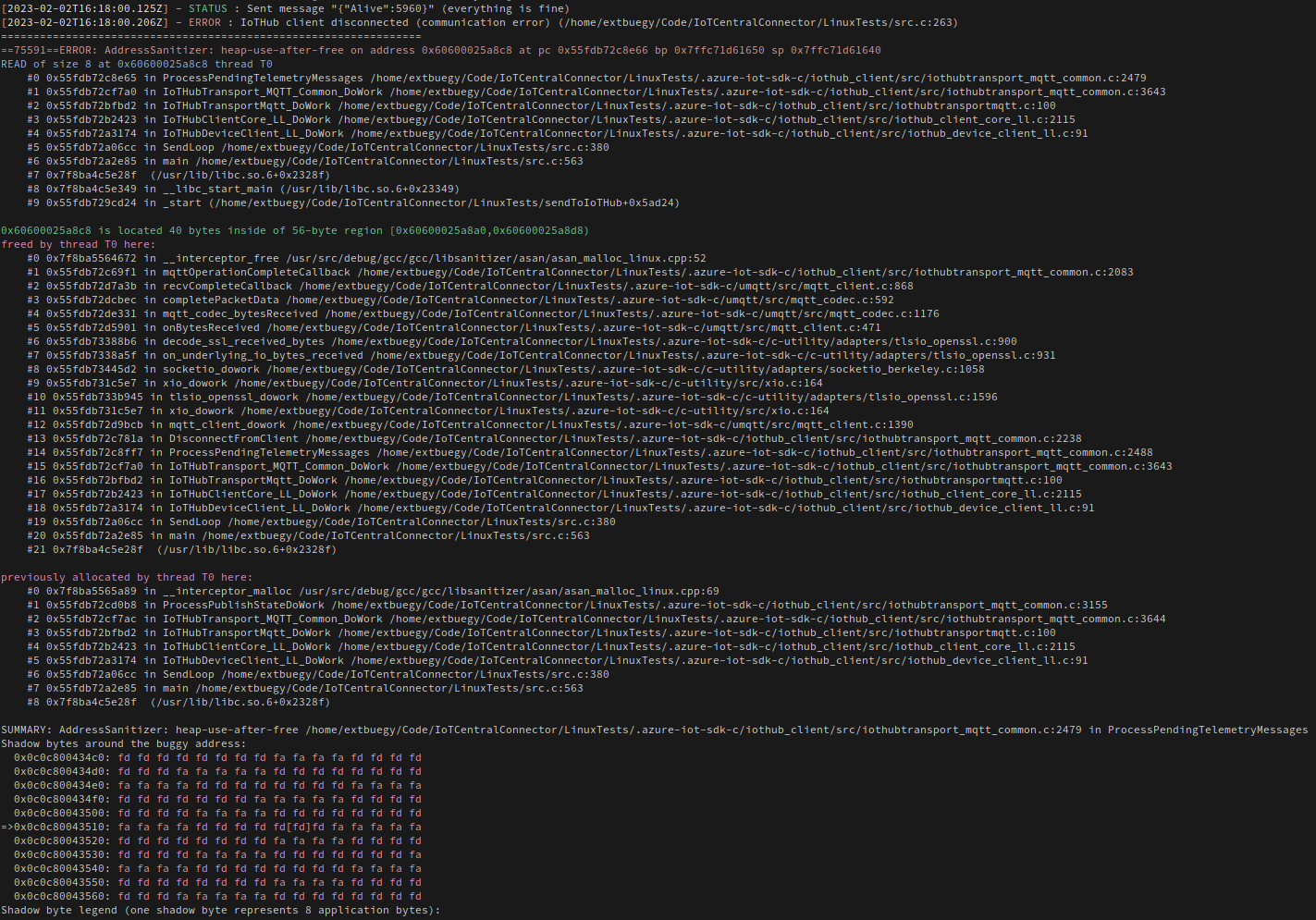The LL APIs are not thread safe. I would avoid using multi threading when calling these APIs. Consider using the non LL APIs are these are thread safe and implement locking in the SDK.
Also, for some reason you are calling IoTHubDeviceClient_LL_DoWork in multiple locations. This is very unusual and should not be required.
The expected pseudo implementation for LL apis is as follows:
main()
{
while()
{
run_application code();
send_any_iot_message();
IoTHubDeviceClient_LL_DoWork();
sleep(100ms);
}
}Samples are located here: https://github.com/Azure/azure-iot-sdk-c/tree/main/iothub_client/samples
Development Machine, OS, Compiler (and Other Relevant Toolchain Info) Bug reproduced on arch linux, debian, ubuntu, yocto, under both x86 and arm architectures.
SDK Version (Please Give Commit SHA if Manually Compiling) LTS_07_2022_Ref02
Protocol MQTT
Describe the Bug After a while of intensive sending (count between 1 and 2 mins), a crash occurs. It appears to be a double linked list issue, accessing a recently freed area. The crash tracks back to IoTHubDeviceClient_LL_DoWork. I also saw some errors in a thread sanitizer. To monitor this issue I used valgrind and google's sanitizers (address & thread). See attached logs below for details.
Here is a minimal example that managed to reproduce the issue for me. I checked the documentation and hopefully I didn't misuse the SDK.
Please replace '[ YOUR CONNECTION STRING GOES HERE ]' by your own connection string. Once compiled, running the program should reproduce the issue.
To call 'IoTHubDeviceClient_LL_DoWork' less frequently, an argument can be given (arg. #1 of the compiled binary) to call the function every X messages passed to the SDK (putting 5 as first argument will pass 5 messages to the SDK before calling the function). By default the function is called after every message passed.
The second and third arguments of the binary are also optional, they allow you to specify the key/value pair in the message sent. By default beeing "Alive" for the key (arg. #2) and "[$count]" for the value (arg. #3) the message will contain an increasing value (to keep track, as a message ID).
Console Logs Thread sanitizer log:
Memory sanitizer log: